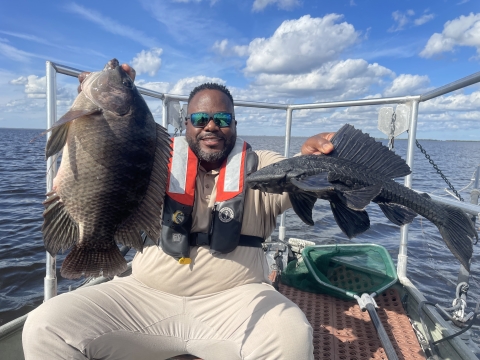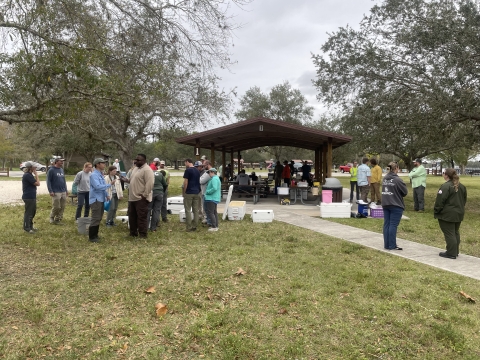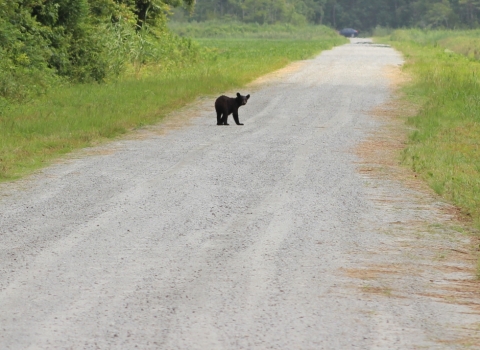It is that time of year again! The time of year when all of Florida’s fisheries professionals get all giddy with excitement to see their fellow fish enthusiasts share stories of the year past, and gather around tables with laughter and cheer. Although these tables were not covered in holiday meals, sparkly decorations, and colorfully wrapped gifts, they were covered in plastic sheeting, exotic fish ID guides, and bright and colorful aquatic invasive species invasive species
An invasive species is any plant or animal that has spread or been introduced into a new area where they are, or could, cause harm to the environment, economy, or human, animal, or plant health. Their unwelcome presence can destroy ecosystems and cost millions of dollars.
Learn more about invasive species . The gathered group of giddy fish biologists were not singing carols or ringing in the new year either, as their collective laughter and cheer was based on the diversity and biomass of collected aquatic invasive species (AIS). What time of year is it? It’s Fish Slam time!
Fish Slam? What’s that? The objective of the bi-annual Florida Nonnative Fish Slam is to conduct early detection surveys in areas of Florida that may potentially have new introductions of AIS. This event, held on December 12-14 2023 was the Fall/Winter 2023 Fish Slam. This cooperative effort, supported with USFWS AIS funds, included over 40 fisheries professionals and students in 14 teams with representatives from the U.S. Fish and Wildlife Service (Peninsular Florida FWCO and Welaka National Fish Hatchery), Florida Fish and Wildlife Conservation Commission (FWC), U.S. National Park Service, U.S. Geological Survey - Nuisance Aquatic Species Section, Florida International University, University of Michigan, University of Florida, Virginia Tech, Louisiana State University, and U.S. Army Corps of Engineers. Crews were spread out over Southwest Florida and sampled canals, rivers, ditches, lakes, and any other accessible waterbody using electrofishing equipment, rod and reels, minnow traps, nets, and other types of sampling gear.
Over 14 species of non-native fish were captured and documented. While it is not rare to encounter AIS in South Florida's tropical waterways, one may be surprised to encounter 40 fish biologists hovered around picnic tables, buckets, and coolers full of these non-native AIS in a park along the Caloosahatchee River in Southwest Florida. These gatherings provide great opportunities for information sharing and planning for combined working opportunities between the groups present. Teaming up with multiple governmental agencies, nonprofit organizations, and universities to combat AIS issues while actively sharing information, techniques, and new survey methods with each other helps all stay alert and on the forefront of AIS control. It is during gatherings like this that new innovative ideas and techniques for the detection and eradication of AIS are formed.
Representative samples of all AIS captured during this event not only filled a database with locations and descriptions, but tissue samples were collected from each species to be used for the development of eDNA [environmental DNA] primers. The eDNA primers will be an additional tool for the detection and management of AIS. Specimens of each species of aquatic animal collected were identified and transferred to the ichthyology collections at the Florida Museum, Louisiana State Universities Museum of Natural Science, and University of Michigan Museum of Zoology.





